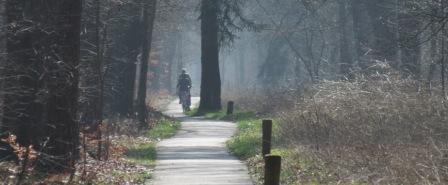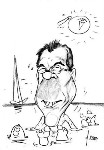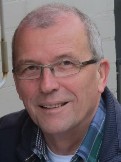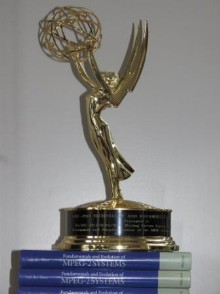Preface
Some excerpts from the Preface.
My first name is Jan, the Dutch version of John, nothing special. My last name is van der Meer, which, with some fantasy, means "from the Lake". Again, nothing special, although I was born indeed very close to one of the various lakes in the north of the Netherlands, in an area considered by many Dutch people as one of the most backward regions in the Netherlands, though most of them never visited it. In fact, it’s of course one of the most beautiful places in the world. Some may still recognize my origin from my articulation, as I refused to polish it; by no means I wish to suggest coming from an unidentified region. Anyway, due to a lot of coincidence and some good reasons described elsewhere, I got deeply involved in MPEG. That was special.
<...>
Prior to attending my last MPEG meeting in Lausanne in July 2007, I informed Olivier Avaro, at that time still the MPEG Systems chair, that Lausanne was to be my last MPEG meeting. Olivier responded very disappointed, in particular, because I was one of the last MPEG-2 Systems experts still active in MPEG. During the MPEG-2 Systems development, often over 100 experts attended the MPEG System meetings, but that number reduced significantly after its completion. Olivier expressed his concern that in MPEG, MPEG-2 System technology's expertise is decreasing to a level that may become critical soon. This may become a problem when in the future, MPEG-2 Systems needs to be extended, for example, to support new audio and video coding specifications. Of course, I agreed with Olivier that in-depth knowledge of MPEG-2 Systems is essential for those extending the MPEG-2 Systems standard in the future. Nevertheless, I explained to Olivier that it may not be good for MPEG but that the Lausanne meeting really was to be my last one. "Well, OK," Olivier said, "but if that will be your last meeting indeed, then why don’t you write a book on MPEG-2 Systems to document your expertise?".
Well, writing a book on MPEG-2 systems was already one of my popular thoughts when finishing the first version of MPEG-2 systems, but I was overwhelmed by other activities, as usual, and I was not the only one. A book with a comprehensive review of MPEG-2 systems does still not exist. Therefore it seems to make sense, even almost twenty years after the standardization of MPEG-2 systems, to write a book to describe the fundamentals and evolution of MPEG-2 Systems technology and provide background on how and why MPEG-2 Systems became what is.
After my full retirement from Philips in 2008, I had time available and decided to work on what became this book, but the start was slow. It took until the second half of 2009 to become more productive. My desire to write a book accessible to people with technical expertise, not only to MPEG system experts, required drawing lots of figures. Quite some figures needed several days of drawing, changing and changing again, and, when further progress was made, sometimes the very painful conclusion was reached that another figure was needed instead.
<...>
Moreover, I wanted the book to not only explain the issues that the MPEG-2 system experts needed to resolve but also to express how much fun it was to resolve these issues jointly. But how to explain fun..? <...> Fortunately, I met Chad Fogg when invited to attend the 100th meeting in April 2012 of MPEG in Geneva. Chad is famous in the MPEG community, not only for his expertise but also for the jokes he regularly makes by producing MPEG quizzes, all kinds of top-10’s, and other fun stuff usually related to ongoing work in MPEG. Meeting Chad again did trigger the idea to include some of his material in the book, where appropriate. I was very pleased when Chad not only agreed with this proposal but also to write the Epilogue of this book. As only a very limited subset of Chad’s material was suitable, below a few examples are provided that remained unused.
email Chad Fogg, April 1, 1995
Subject: Top 10 Resolutions of the Lausanne Meeting
Nr 5. WG11 establishes liasonship with ski slopes to investigate "frozen syntax" (Convenor notes observation by Swedish Head of Delegation, that like MPEG, water actually expands after freezing).
During the standardization process, the draft specification is "frozen", which means that no new technology is adopted unless to repair a broken issue.
<...>





